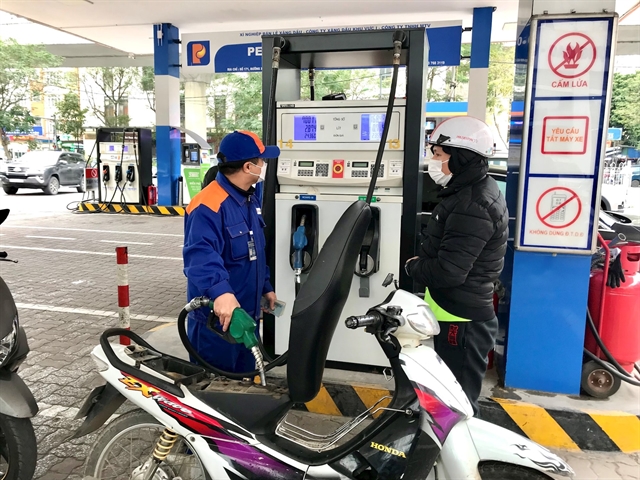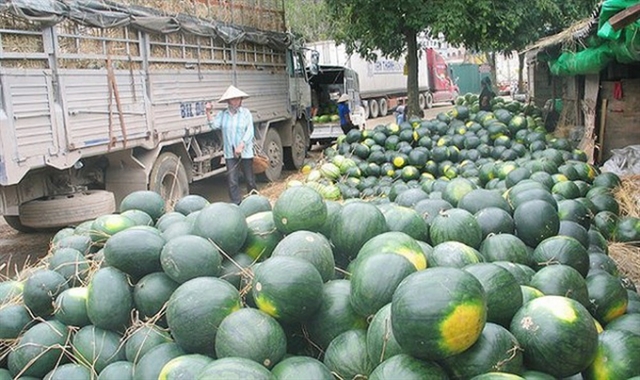 Economy
Economy

Việt Nam’s farming, forestry and fishery export trade with China fell about 7 per cent year-on-year in the first quarter of this year to US$2.2 billion due to the virus.

|
| Việt Nam’s farming, forestry and fishery export trade with China fell about 7 per cent year-on-year in the first quarter of this year to US$2.2 billion. — Photo baodautu.vn |
HÀ NỘI — Minister of Agriculture and Rural Development Nguyễn Xuân Cường had a working session with Chinese Ambassador to Việt Nam Xiong Bo in Hà Nội on Thursday to discuss facilitating the exchange of agricultural products between the two countries amid the COVID-19 pandemic.
Việt Nam’s farming, forestry and fishery trade with China fell about 7 per cent year-on-year in the first quarter of this year to US$2.2 billion due to the virus.
Tightened controls by the neighbouring country in response to the pandemic slowed customs procedures, Cường said, adding that the opening of the Chinese market for Vietnamese farm produce, working trips by delegations from the two agriculture ministries and major trade fairs have been suspended due to the pandemic.
Cường called on the ambassador to help facilitate online procedures so that technical issues are addressed.
He expressed a hope that administrative procedures would be completed as soon as possible so that more Vietnamese agricultural products can be exported to China, contributing to enhancing bilateral trade and spurring agricultural development in both countries.
He also proposed the Chinese side extend the opening of its customs offices, which are only five or six hours at certain border gates, and that the two sides invest more human resources in this regard.
Ambassador Xiong Bo stressed the need to strictly control the pandemic and promote trade and economic co-operation.
He said China must still conduct thorough inspections at border gates due to the possibility of the disease spreading.
China’s customs sector has adopted many measures to shorten the time needed to complete customs clearance, he explained, suggesting that Việt Nam expand cargo parking areas to ease congestion at border gates such as Tân Thanh and Hữu Nghị.
Exported goods to China should not be concentrated at land border gates, he said, the goods could be transported by the Đồng Đăng-Bằng Tường railway to China. The railway has many advantages, including large cargo capacity and low cost.
Besides, Việt Nam should launch online medical declaration services for drivers to save time spent on the customs clearance process.
He said he believed the existing difficulties are temporary and the two countries should work hard to solve them.
He also recommended Việt Nam and China develop a disease prevention mechanism at the Government level, with the participation of forces from central to grassroots levels.
The two sides also agreed to focus on customs measures to quickly distribute farm produce stuck at border gates.
The ambassador said Việt Nam is China's largest and most important trading partner in ASEAN, accounting for 25 per cent of China's trade with this region.
The two sides need to strengthen co-operation in developing high-tech agriculture and e-commerce to increase revenue for farmers. — VNS




